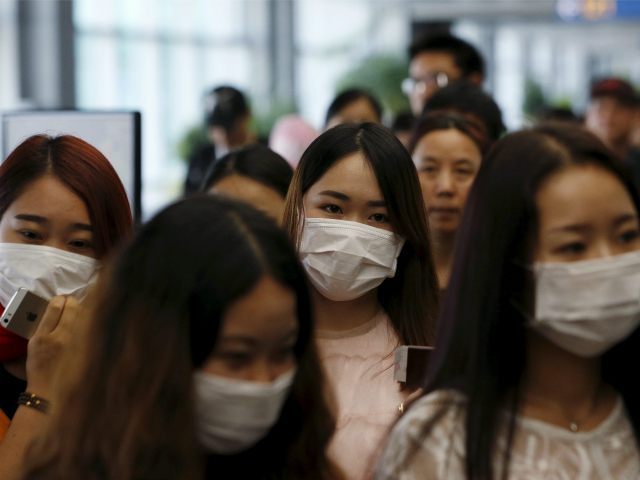South Korean officials announced on Wednesday that they can confirm the existence of five new cases of the Middle East Respiratory Syndrome, commonly called MERS.
Of those cases, four of the five patients had been in the same hospital as the first patient, a 68-year-old who travelled to several countries in the Middle East. The fifth patient caught the disease from another person infected with the virus.
A current total of 30 people have tested positive for the disease, and the South Korean government is waiting on about 100 test results to come back.
Two South Koreans have been killed by the recent MERS outbreak.
MERS is a virus which targets the respiratory system—lungs and breathing tubes. It was first reported in Saudi Arabia in 2012, and 30-40 percent of those infected have died. There is no vaccine.
The Centers for Disease Control and Prevention believe that MERS spreads through close contact. People who have recently journeyed to the Middle East, those who have been in close contact with them, and those who have been in close contact with camels.
MERS is related to the deadly SARS virus which killed about 8,000 in 2003, primarily in China. The CDC was able to partner with the World Health Organization to prevent more deaths and a global pandemic.
South Korea is doing everything it can do to prevent the further spread of the virus. 544 schools, 3 percent of the nation’s 20,000, have been temporarily closed, primarily in the country’s Gyeonggi and Chuncheong Provinces. In addition, about 1,400 people have been quarantined.
However, South Korea has yet to upgrade their disease alert level from “watch” to “warning.”
The government says that most cases of the virus spreading can be attributed to careless infection control.
“A lot of fear we see now is rooted in the distrust of the government and what it says,” crisis management expert Yu Min-yeong said.
There is only one case of MERS caused by the outbreak in South Korea which is known to have spread outside of its borders. A Chinese national, visiting South Korea, brought the virus back to his homeland.
Two Americans have tested positive for MERS, but both were in May 2014 and are unconnected to the recent South Korean outbreak.
“There is no reason for people to panic, and nothing so far suggests to me that the virus has changed to become more dangerous,” Dr. Allison McGeer, an expert on infection control at Toronto’s Mount Sanai Hospital, said.

COMMENTS
Please let us know if you're having issues with commenting.